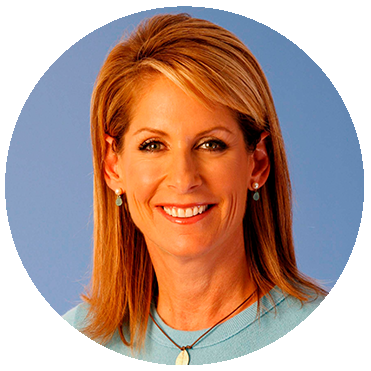
- This event has passed.
Fall 2016 PIA Benefit Luncheon
November 10, 2016 @ 12:00 pm - 2:00 pm
The Risky Business of Risky Drinking By Pamela Awad
Towards the middle of November, days after the surprising results of the presidential election, Perri Peltz and Dr. Carrie Wilkens talked about their new documentary Risky Drinking, to be aired this January on HBO. The film’s about alcohol use disorder and “was born of people asking, ‘I drink at night and I only drink red wine and I never drink on Sundays…am I OK?’’ Ms. Peltz said. “We started hearing that question so much, that’s what gave birth to this film.” The two, who spoke at the annual fall benefit lunch on behalf of Parents in Action, explained that alcohol use disorder is best described on a spectrum. In answer to the question, “Do I have a problem?” the film profiles four people along the alcohol use disorder spectrum.
Risky Drinking is co-produced by HBO, the National Institute of Health (NIH) and the National Institute of Alcohol Abuse and Alcoholism (NIAA). Peltz is the mother of three boys and a well- known media presence in  New York. She’s reported for NBC, ABC, CNN, has been an anchor on a number of networks and is a public health advocate. Carrie Wilkens, Ph.D., is one of the featured experts in the film. She’s the Co-Founder and Clinical Director of the Center for Motivation and Change in NYC and in the Berkshires, and is the co- author of two books about addiction, Beyond Addiction: How Science and Kindness Help People Change and The 20 Minute Guide: A Guide for Parents about How to Help their Child Change their Substance Use.
New York. She’s reported for NBC, ABC, CNN, has been an anchor on a number of networks and is a public health advocate. Carrie Wilkens, Ph.D., is one of the featured experts in the film. She’s the Co-Founder and Clinical Director of the Center for Motivation and Change in NYC and in the Berkshires, and is the co- author of two books about addiction, Beyond Addiction: How Science and Kindness Help People Change and The 20 Minute Guide: A Guide for Parents about How to Help their Child Change their Substance Use.
Two five- minute clips from the film were played, the first profiling a 26 year-old woman from Denver, Colorado, who binge drinks. The segment follows her, hour-by-hour, one night over Halloween weekend. Ms. Peltz introduced the segment by saying this young woman did not consider herself to have a drinking problem; the subject went on to describe why she drinks before going out. “Drinking definitely eases the dating world, the whole point of drinking is to turn off your brain for once and not think of anything. I didn’t drink at all this week knowing I was going to drink a ton this weekend.” The film follows her through the night as she consumes somewhere near sixteen drinks (the amount of alcohol in each shot or drink is hard to determine), including vodka, vodka jello shots, tequila, whisky and beer. Around 1:30 in the morning we see her sobbing while apologizing to a friend who brings her home.
The second clip follows a group of stay-at-home moms from Fayetteville, Arkansas who found each other through the blog, “momwhodrinksandcusses.” “We started doing Happy Hour every Thursday,” one said. “It’s like a therapy session. We get together and we drink wine.” For them drinking is bonding, and the pleasure the friends take in drinking and drinking with each other is evident. Some of the exchanges between the mothers in the film were greeted with recognizable laughter from the audience, most of who were also mothers. But the seductiveness of alcohol to ease the tedium, frustration and challenges of raising children, sometimes alone, is cause for concern. Ms. Peltz said the segment was originally intended to represent alcohol use disorder at the beginning of the spectrum but when one friend asks, “What do you do when one of your friends seems like they’re in trouble? How do you know when things have gone too far?” it’s clear the solace found in drinking  can tip towards alcohol abuse. The troubled mother says, “I know without alcohol who I want to be, I want to be Oprah…I want to be amazing, I want to be a rock star. When I drink I’m not that awesome and I don’t remember. You think I’d stop.” Towards the end of the segment she says, “ Drinking impacts my relationship with my kids. I want to be able to moderate. I want to be able to function. I don’t feel like I’m doing a very good job at functioning right now, (but) I don’t think I want to be completely sober.” As described by Ms. Peltz, the remaining segments of the film feature stories about a 59-year-old man “well on his way to becoming a full blown alcoholic,” and an end stage alcoholic who has been in and out of detox thirteen times over the course of two years.
can tip towards alcohol abuse. The troubled mother says, “I know without alcohol who I want to be, I want to be Oprah…I want to be amazing, I want to be a rock star. When I drink I’m not that awesome and I don’t remember. You think I’d stop.” Towards the end of the segment she says, “ Drinking impacts my relationship with my kids. I want to be able to moderate. I want to be able to function. I don’t feel like I’m doing a very good job at functioning right now, (but) I don’t think I want to be completely sober.” As described by Ms. Peltz, the remaining segments of the film feature stories about a 59-year-old man “well on his way to becoming a full blown alcoholic,” and an end stage alcoholic who has been in and out of detox thirteen times over the course of two years.
After the film clips the women talked about alcohol use and binge drinking, which has been normalized to some extent, but greatly affects decision-making and risk-taking behaviors. Ms. Peltz pointed out that men and women process alcohol in very different ways. “We can get drunker faster,” she said. “Women have more fat in their bodies while men have more water,” explained Dr. Wilkens. Because women also lack the stomach enzyme that helps the body process alcohol it becomes more concentrated in women’s bodies. Estrogen seems to play a role too; taken all together long term alcohol use poses greater risks to women’s health in general – their organs break down faster, leading to breast cancer and other diseases.
In response to a question from the audience Dr. Wilkens defined drinking level limits. For women, low risk drinking is “no more than three drinks on any one occasion during a week for a total of seven drinks. For men, low-risk drinking means up to fourteen drinks a week and no more than four drinks on any one occasion. Binge drinking consists of four drinks in one setting for women and five drinks in one setting for men “or a .08 blood alcohol concentration that is typically reached after four or five drinks within a two-hour period,” said Dr. Wilkens. She continued, “Intoxication is determined by the rate you consume and how big you are. Little girls can react differently to the same number of shots than the 6’2” guy next to her. She’s probably going to get drunker.”
Will college kids develop drinking problems? “Their drinking is so out of control, so off the spectrum we don’t know if they’ll develop a drinking problem,” said Ms. Peltz. Dr. Wilkens added, “People will say if he’s drinking like that in college isn’t he destined to become an alcoholic? In reality most (college kids) grow out of it, they just stop, life gets more complicated and they go back to normal drinking.”
“Part of what you’re trying to do as a parent is protect your kid’s developing brain,” said Dr. Wilkens. “The brain’s a fragile thing and anything you can do as a parent to keep drugs and alcohol out of that brain, so it can develop, is a good thing.” As a young person, “You’re also learning so many things, you’re learning how to interact with people, you’re learning your physical and emotional boundaries you’re learning how to take care of yourself, what you can accomplish,’ she said. The take away: when you’re young, learning can be disrupted by choosing substances; when you’re older, by choosing substances you can disrupt your life.
